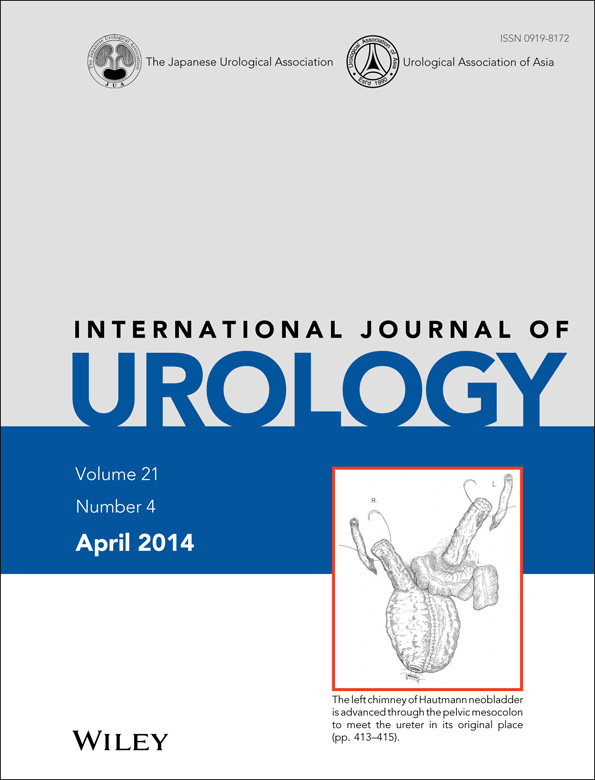Oncological impact of endoscopic bladder cuff management during nephroureterectomy varies according to upper urinary tract tumor location
Abstract
Objectives
To compare the oncological outcome between extravesical excision and transurethral excision for bladder cuff management in patients undergoing nephroureterectomy with upper urinary tract urothelial cancer.
Methods
From January 2005 to December 2010, 396 patients were enrolled in the present retrospective study. Nephroureterectomy was carried out either by endoscopic or extravesical bladder cuff excision. The oncological outcome between these two procedures was analyzed in patients with different tumor locations.
Results
The average age of the patients was 66.41 ± 10.52 years, and the median follow-up duration was 40.65 ± 23.84 months. For upper urinary tract urothelial cancer management, extravesical bladder cuff excision was carried out in 240 patients, whereas the endoscopic method was carried out in 156 patients. Previous bladder cancer is still the most independent predictor for bladder recurrence (P < 0.001). In addition, endoscopic bladder cuff management for low ureteral tumor was also independently associated with more bladder tumor recurrence (P = 0.017). Non-organ confined pathological stage still independently predicted metastasis (P < 0.001) and cancer-specific death (P < 0.001).
Conclusions
There are similar oncological outcomes after nephroureterectomy combined with extravesical or endoscopic bladder cuff management for patients with upper urinary tract urothelial cancer above the low ureter. However, there is a higher incidence of bladder tumor recurrence for the low ureteral tumor after nephroureterectomy with endoscopic bladder cuff excision.




